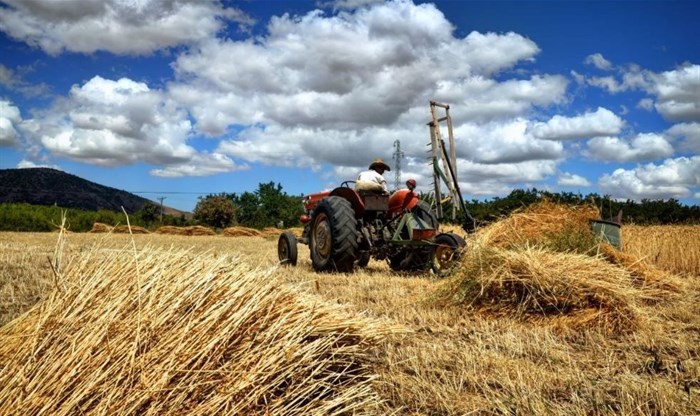
This is one of the main findings of a recent doctoral study at Stellenbosch University (SU).
"There’s a move towards renewable and biodegradable food packaging in a bid to replace non-renewable and non-biodegradable petroleum-based packaging materials. We should consider using agricultural-residues like wheat straw and mango peels, which are rich in bio or natural polymers and antioxidants, as alternative raw materials to petroleum-based packaging materials," says Dr Lindleen Mugwagwa, who is a postdoctoral fellow in the Department of Process Engineering at SU. She recently obtained her doctorate in Chemical Engineering at SU.
Mugwagwa’s study was the first to develop methods for extracting the necessary bio or natural polymers and antioxidants from both wheat straw and mango peels that contain properties which are suitable for developing an active food packaging material. It was also the first time that these products were integrated to form a biocomposite film (a material composite consisting of biodegradable polymers and bio-based reinforcing agents) that was tested in a food environment.
As part of her study, Mugwagwa developed and optimised processes for extracting these polymers and antioxidants. She then combined the polymers and antioxidants to make a food packaging material and tested the stability of the biocomposite films when in contact with food as well as their potential to release antioxidants into packaged food over time. Low-density polyethylene film, a commonly used plastic, was used as a benchmark.
Mugwagwa says her study showed that the properties of polymers and antioxidants in wheat straw and mango peels can be tailor-made during extraction to suit their application in food packaging. The polymers and antioxidants can be extracted simultaneously from the same feedstock without affecting their use in food packaging.
"The bio-based films that I developed were capable of releasing more antioxidants into food over a short period of time when compared to low-density polyethylene plastic. This suggests that they can be a replacement for packaging perishables.
"The release of antioxidants into food by packaging material is becoming an important aspect to consider when choosing packaging material. Packaging material capable of releasing antioxidants into food in response to storage conditions have the potential to increase the shelf life of products because the released antioxidants act upon free radicals and microorganisms which may develop when food is improperly stored or when food is stored for longer periods."
"My research provides cheap, sustainable and biodegradable polymers that can be used in the development of food packaging and also presents methods for recovering natural antioxidants and their application as additives to food packaging material. These natural antioxidants have the potential to replace artificial antioxidants in packaging material that could cause cancer."
Mugwagwa says the type of food packaging material proposed in her study could be ideal to replace environmentally hazardous petroleum-based packaging materials.
She adds that biorefineries, the food packaging industry as well as farmers and consumers will benefit from her research.
Mugwagwa’s study was conducted under the supervision of Prof A.F.A Chimphango with the financial support from the Organisation for Women in Science for the Developing World, the Swedish International Development Cooperation Agency (SIDA), the National research Foundation of South Africa, the Department of Science and Technology/Council for Scientific and Industrial Research Waste Road Map and SU’s Department of Process Engineering.